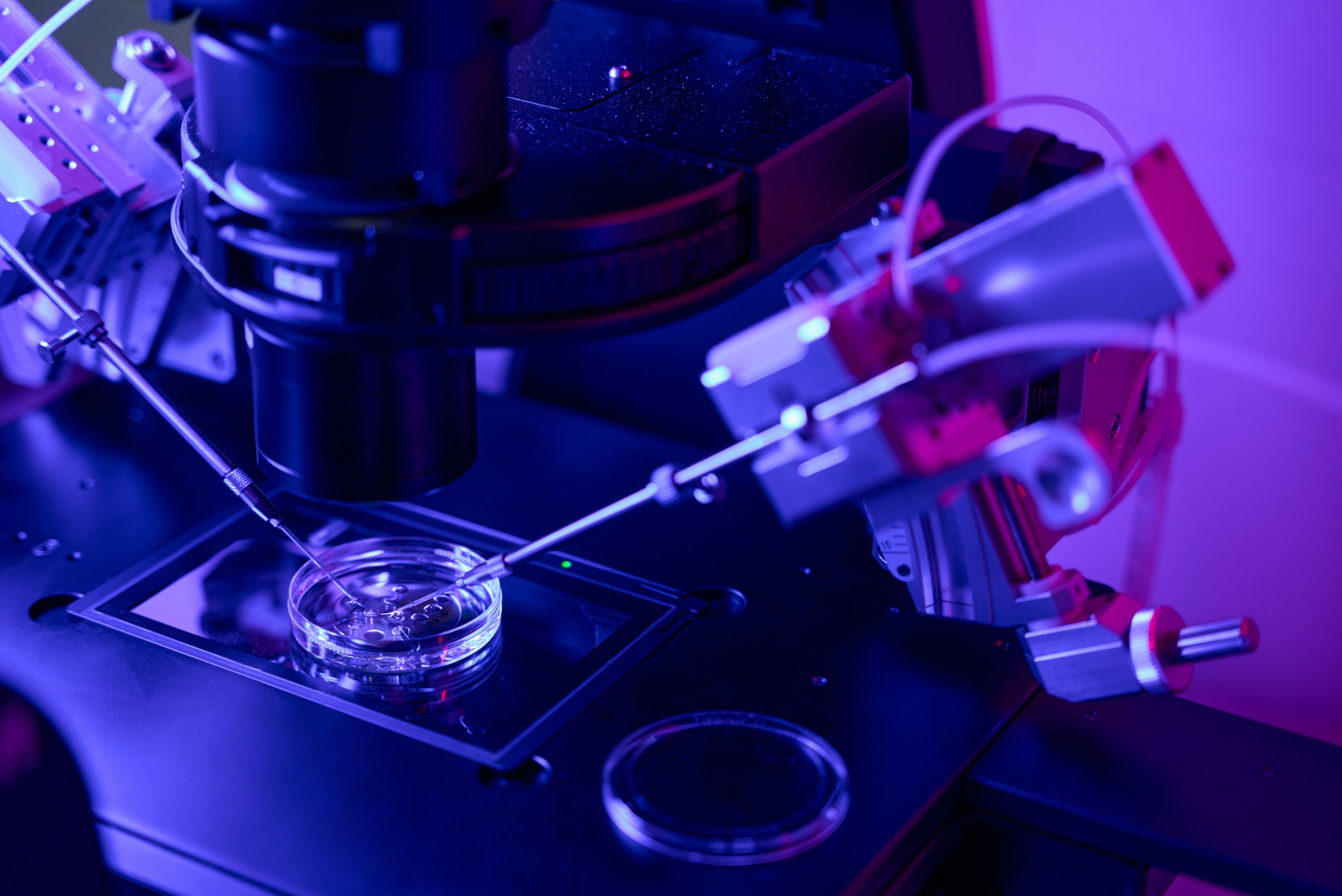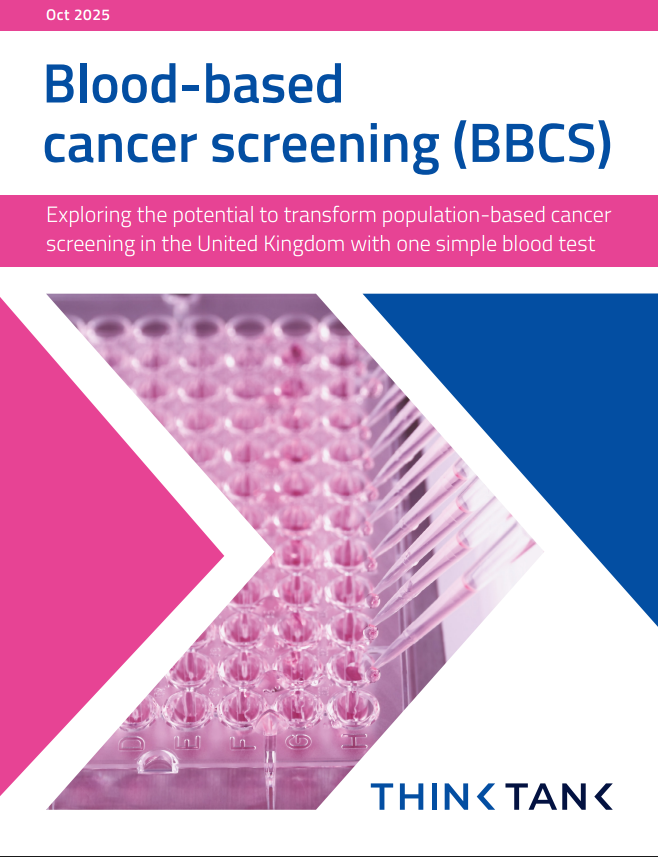Blood-based cancer screening is a groundbreaking healthcare innovation with the potential to transform cancer detection across Europe.
The Blood-based Cancer Screening (BBCS) Think Tank project, led by EIT Health, is a pan-European, multi-stakeholder initiative exploring the potential of blood-based cancer screening to improve population-based programmes. Specifically, it focuses on Multi-Cancer Early Detection (MCED) tests, which use blood samples to detect multiple cancers at an early stage.
These innovative tests promise less invasive and more accessible cancer screening, aligning with the EU’s ambition to enhance early diagnosis and reduce the cancer burden outlined in Europe’s Beating Cancer Plan.

Our objectives
Through this work, we will:
- Assess potential: Examine the feasibility of BBCS as a population-based tool within existing screening programmes.
- Determine evidence requirements: Identify the minimum clinical and scientific evidence required for adoption, including sensitivity, specificity, surrogate endpoints, health economic models, and a balance of benefits and harms.
- Plan implementation: Analyse the operational needs, such as care pathway adaptations and infrastructure, to integrate blood-based cancer screening into healthcare systems.
- Encourage uptake: Understand broader implications for public adoption, focusing on education and awareness to foster understanding and acceptance.

Our approach
We are employing a structured and collaborative approach to gather key insights from across our vast, pan-European healthcare innovation network and develop actionable recommendations.
After a review of cancer screening programmes, EU and national guidelines, and evidence requirements, we will interview policymakers, healthcare professionals, and patient representatives to capture diverse perspectives.
We are then holding a series of roundtable discussions across Europe to explore the local challenges, policy contexts, and opportunities for BBCS integration. Our findings will be shaped and validated by a Steering Committee of experts to produce a national report for each country.
Publications
Transforming early cancer detection through blood-based screening

The scale of the cancer challenge in Europe
Cancer continues to pose a significant challenge to European citizens and healthcare systems. Cancer is the second leading cause of death in Europe and survival rates vary greatly depending on cancer type and stage at diagnosis, underscoring the importance of early detection[2]. Meanwhile, the economic burden of cancer across the EU exceeds €199 billion annually. Early diagnosis can significantly reduce these costs by enabling less expensive, less invasive treatment interventions[3].

Screening gaps and late diagnoses
National screening programmes are inconsistent, and uptake remains low for many cancer types due to barriers such as accessibility, public awareness, and logistical challenges. For high-burden cancers like lung and prostate cancer, screening is often underdeveloped[4]. Late-stage diagnoses account for much of the high mortality and economic burden, with over 60% of cancers being diagnosed at an advanced stage[5].

The transformative potential of early diagnosis
Blood-based cancer screening, particularly MCED tests, can detect multiple cancers simultaneously through specific biological markers like DNA fragments or proteins released by cancer cells. While these tests do not provide a definitive diagnosis, they can identify the need for further tests to diagnose or rule out cancer, so that the patient can access treatment at the earliest possible timepoint, if needed. These tests are:
- Less invasive: Requiring only a simple blood draw instead of biopsies or colonoscopies.
- Focused on early detection: Identifying cancers before symptoms appear, improving treatment outcomes.
- Broad in scope: Screening multiple cancers with one test, reducing the need for separate diagnostics.
Follow the project
Having started in 2024, this project is ongoing until the end of 2025. Stay tuned to EIT Health social channels for updates on each of our upcoming roundtables as part of this series.
How was this work funded?
EIT Health receives funding through Horizon Europe for all Think Tank related activity. However, the scale and ambition of this particular research project is such that financial support has been received from life sciences industry funders for implementation. The funders are currently Roche Diagnostics and Guardant Health. EIT Health operates under strict arm’s-length agreements with industry funders, structured as ‘Educational Grants,’ which explicitly prohibit any influence over the project’s direction, execution, or outcomes. EIT Health remains an independent platform, committed to neutral, objective policy research.
[1] European Commission (2022) ‘Proposal for a Council Recommendation on strengthening prevention through early detection: A new EU approach on cancer screening replacing Council Recommendation 2003/878/EC’, COM/2022/474 final. Available at: https://eur-lex.europa.eu/legal-content/EN/TXT/?uri=celex%3A52022DC0474 (Accessed: 28 January 2025).
[2] Ferlay, J., Colombet, M., Soerjomataram, I., et al. (2018). Global cancer statistics 2018: GLOBOCAN estimates of incidence and mortality worldwide for 36 cancers in 185 countries. CA: A Cancer Journal for Clinicians, 68(6), 394–424.
[3] Luengo-Fernandez, R., Leal, J., Gray, A., and Sullivan, R. (2013). Economic burden of cancer across the European Union: a population-based cost analysis. The Lancet Oncology, 14(12), 1165–1174.
[4] Hewitson, P., Glasziou, P., Watson, E., et al. (2008). Cochrane systematic review of colorectal cancer screening using the fecal occult blood test (hemoccult): An update. American Journal of Gastroenterology, 103(6), 1541–1549.
[5] Torre, L.A., Siegel, R.L., Ward, E.M., and Jemal, A. (2016). Global Cancer Incidence and Mortality Rates and Trends—An Update. Cancer Epidemiology, Biomarkers & Prevention, 25(1), 16–27.
Enacting Change
As well as providing thought leadership, we are developing new products and services that deliver cutting-edge innovations to transform healthcare. Discover some of our projects.
